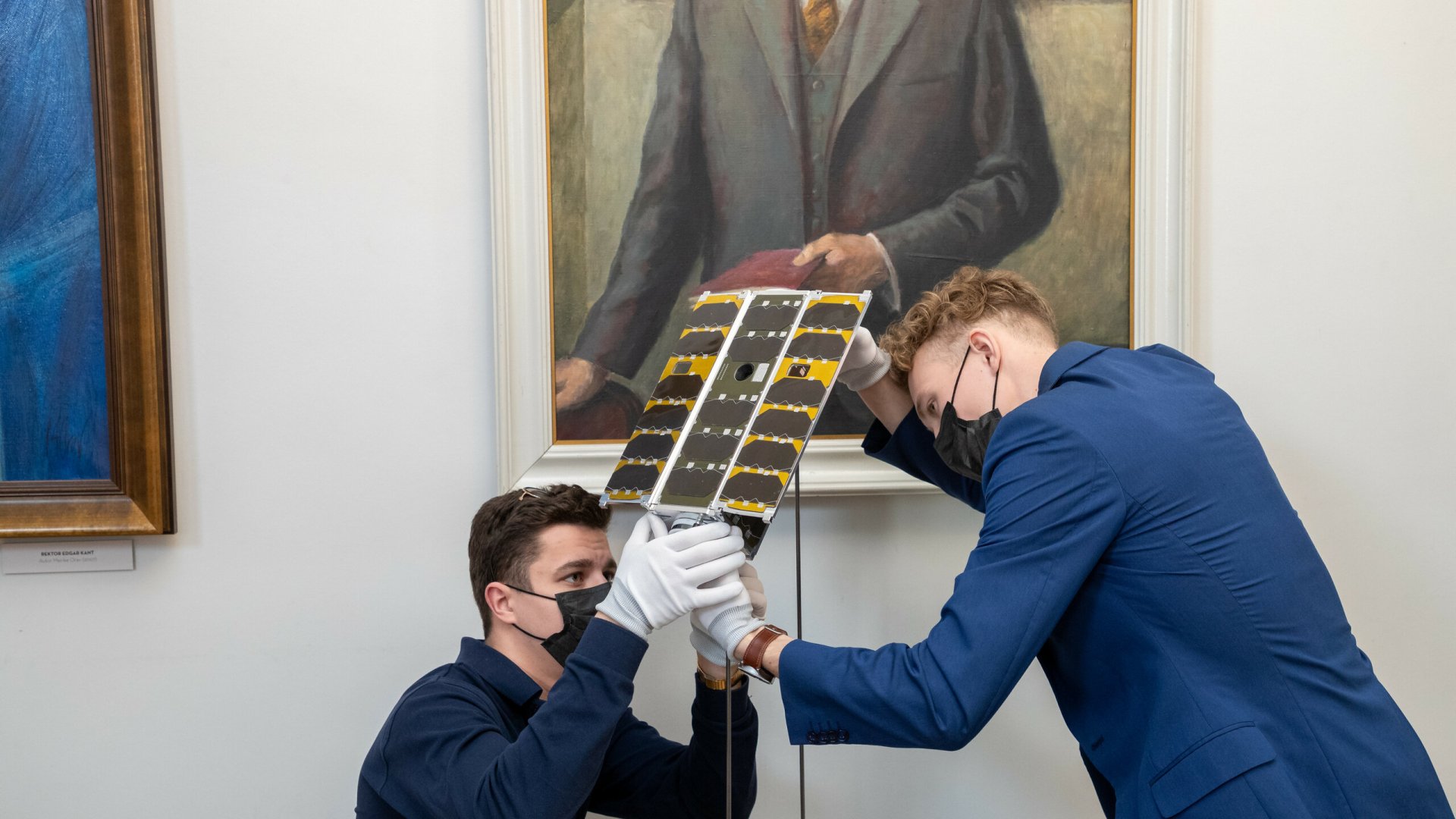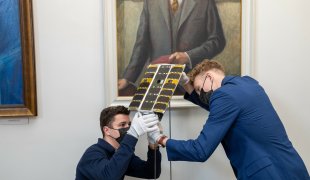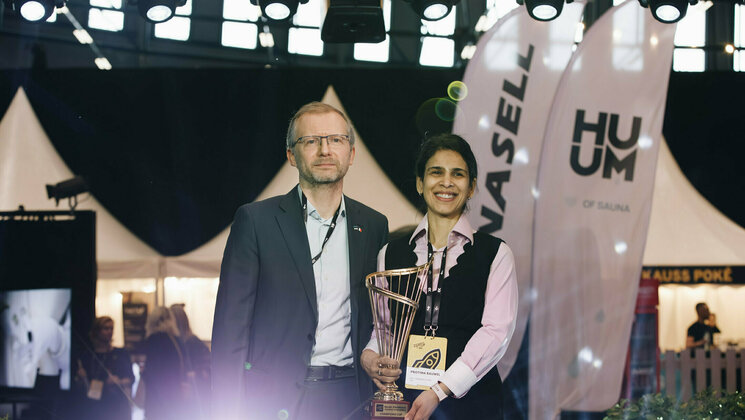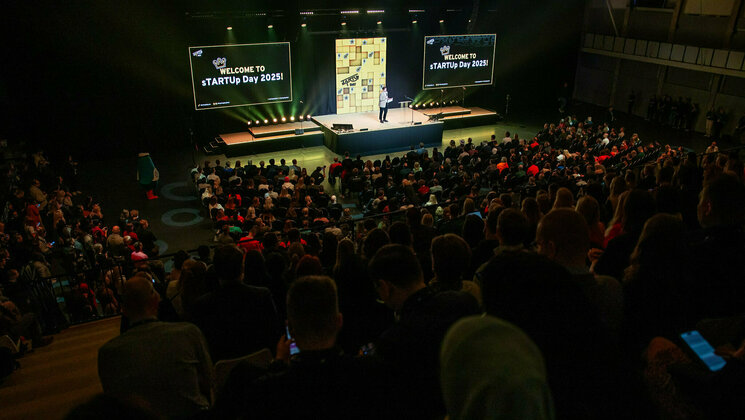-
Faculty of Arts and HumanitiesDean's Office, Faculty of Arts and HumanitiesJakobi 2, r 116-121 51005 Tartu linn, Tartu linn, Tartumaa EST0Institute of History and ArchaeologyJakobi 2 51005 Tartu linn, Tartu linn, Tartumaa EST0Institute of Estonian and General LinguisticsJakobi 2, IV korrus 51005 Tartu linn, Tartu linn, Tartumaa EST0Institute of Philosophy and SemioticsJakobi 2, III korrus, ruumid 302-337 51005 Tartu linn, Tartu linn, Tartumaa EST0Institute of Cultural ResearchÜlikooli 16 51003 Tartu linn, Tartu linn, Tartumaa EST0Institute of Foreign Languages and CulturesLossi 3 51003 Tartu linn, Tartu linn, Tartumaa EST0School of Theology and Religious StudiesÜlikooli 18 50090 Tartu linn, Tartu linn, Tartumaa EST0Viljandi Culture AcademyPosti 1 71004 Viljandi linn, Viljandimaa EST0Professors emeriti, Faculty of Arts and Humanities0Associate Professors emeriti, Faculty of Arts and Humanities0Faculty of Social SciencesDean's Office, Faculty of Social SciencesLossi 36 51003 Tartu linn, Tartu linn, Tartumaa EST0Institute of EducationJakobi 5 51005 Tartu linn, Tartu linn, Tartumaa EST0Johan Skytte Institute of Political StudiesLossi 36, ruum 301 51003 Tartu linn, Tartu linn, Tartumaa EST0School of Economics and Business AdministrationNarva mnt 18 51009 Tartu linn, Tartu linn, Tartumaa EST0Institute of PsychologyNäituse 2 50409 Tartu linn, Tartu linn, Tartumaa EST0School of LawNäituse 20 - 324 50409 Tartu linn, Tartu linn, Tartumaa EST0Institute of Social StudiesLossi 36 51003 Tartu linn, Tartu linn, Tartumaa EST0Narva CollegeRaekoja plats 2 20307 Narva linn, Ida-Virumaa EST0Pärnu CollegeRingi 35 80012 Pärnu linn, Pärnu linn, Pärnumaa EST0Professors emeriti, Faculty of Social Sciences0Associate Professors emeriti, Faculty of Social Sciences0Faculty of MedicineDean's Office, Faculty of MedicineRavila 19 50411 Tartu linn, Tartu linn, Tartumaa ESTInstitute of Biomedicine and Translational MedicineBiomeedikum, Ravila 19 50411 Tartu linn, Tartu linn, Tartumaa ESTInstitute of PharmacyNooruse 1 50411 Tartu linn, Tartu linn, Tartumaa ESTInstitute of DentistryL. Puusepa 1a 50406 Tartu linn, Tartu linn, Tartumaa ESTInstitute of Clinical MedicineL. Puusepa 8 50406 Tartu linn, Tartu linn, Tartumaa ESTInstitute of Family Medicine and Public HealthRavila 19 50411 Tartu linn, Tartu linn, Tartumaa ESTInstitute of Sport Sciences and PhysiotherapyUjula 4 51008 Tartu linn, Tartu linn, Tartumaa ESTProfessors emeriti, Faculty of Medicine0Associate Professors emeriti, Faculty of Medicine0Faculty of Science and TechnologyDean's Office, Faculty of Science and TechnologyVanemuise 46 - 208 51003 Tartu linn, Tartu linn, Tartumaa ESTInstitute of Computer ScienceNarva mnt 18 51009 Tartu linn, Tartu linn, Tartumaa ESTInstitute of GenomicsRiia 23b/2 51010 Tartu linn, Tartu linn, Tartumaa ESTEstonian Marine Institute0Institute of PhysicsInstitute of ChemistryRavila 14a 50411 Tartu linn, Tartu linn, Tartumaa EST0Institute of Mathematics and StatisticsNarva mnt 18 51009 Tartu linn, Tartu linn, Tartumaa EST0Institute of Molecular and Cell BiologyRiia 23, 23b - 134 51010 Tartu linn, Tartu linn, Tartumaa ESTTartu ObservatoryObservatooriumi 1 61602 Tõravere alevik, Nõo vald, Tartumaa EST0Institute of TechnologyNooruse 1 50411 Tartu linn, Tartu linn, Tartumaa ESTInstitute of Ecology and Earth SciencesJ. Liivi tn 2 50409 Tartu linn, Tartu linn, Tartumaa ESTProfessors emeriti, Faculty of Science and Technology0Associate Professors emeriti, Faculty of Science and Technology0Institute of BioengineeringArea of Academic SecretaryHuman Resources OfficeUppsala 6, Lossi 36 51003 Tartu linn, Tartu linn, Tartumaa EST0Area of Head of FinanceFinance Office0Area of Director of AdministrationInformation Technology Office0Administrative OfficeÜlikooli 17 (III korrus) 51005 Tartu linn, Tartu linn, Tartumaa EST0Estates Office0Marketing and Communication OfficeÜlikooli 18, ruumid 102, 104, 209, 210 50090 Tartu linn, Tartu linn, Tartumaa EST0Area of Vice Rector for DevelopmentCentre for Entrepreneurship and InnovationNarva mnt 18 51009 Tartu linn, Tartu linn, Tartumaa EST0University of Tartu Natural History Museum and Botanical GardenVanemuise 46 51003 Tartu linn, Tartu linn, Tartumaa EST0International Cooperation and Protocol Office0University of Tartu MuseumLossi 25 51003 Tartu linn, Tartu linn, Tartumaa EST0Area of RectorRector's Strategy OfficeInternal Audit OfficeArea of Vice Rector for Academic AffairsOffice of Academic AffairsUniversity of Tartu Youth AcademyUppsala 10 51003 Tartu linn, Tartu linn, Tartumaa EST0Student Union OfficeÜlikooli 18b 51005 Tartu linn, Tartu linn, Tartumaa EST0Centre for Learning and TeachingArea of Vice Rector for ResearchUniversity of Tartu LibraryW. Struve 1 50091 Tartu linn, Tartu linn, Tartumaa EST0Grant Office
University of Tartu and CybExer Technologies plan to connect ESTCube-2 satellite into a unique cybersecurity system

Cyber attacks threaten many computer-controlled systems. Attacks on technology, on which people's lives depend, are particularly dangerous. The functioning components of many terrestrial systems are located in space. One example of a cyberthreat is the manipulation of GPS satellites to block signals from them or cause them to transmit false signals. Air and shipping traffic and many other technical systems that affect people's daily lives depend on it. Failure or malicious manipulation of satellite control systems can cause enormous economic damage or danger to human life.
In cooperation with the University of Tartu Observatory and CybExer, it is planned to create a digital twin from the ESTCube-2 satellite control system. The twin has the same functions used to control the satellite, but their implementation does not affect the operation of the ESTCube-2. On the twin, it is possible to test and develop the system's resistance to cyberattacks and to improve the original control system based on the experience gained. It can also be used to train satellite operators.
The one-and-a-half-year collaborative project is unique in the world, and the clonable cybersecurity application added to ESTCube-2 makes it even more interesting. In the longer term, the parties' joint research and development will enable the creation of new cybersecurity tools and products that can be used in satellite control systems worldwide. The cooperation also creates various new and exciting follow-up project opportunities for the Estonian space cluster.
The project marks the beginning of a long-term cooperation between the University of Tartu and CybExer Technologies in the field of cybersecurity. A memorandum of understanding was also signed to confirm this.
“The University of Tartu has led the development of Estonian space technology and cybersecurity issues. This cooperation is a good example of how we can connect these two areas and create something that no one else in the world has done at such a level yet,” said Toomas Asser, Rector of the University of Tartu. "ESTCube-2 will be the safest student satellite in the world," the rector emphasised.
With the help of the project, CybExer Technologies can expand the ways of using its own cyber range. Cyber range is a solution that enables the simulation of IT systems, which can be used to test the resistance of different systems to cyberattacks and protection against them. The cyber range is also used in the popular youth cyber competition Cyber Battle of Estonia, organised by CybExer and the University of Tartu for many years.
Andrus Kivisaar, Member of the Management Board of CybExer Technologies, said that there is a great demand in the world for the new functions of the cyber range. "We are pleased to cooperate with the University of Tartu in an area that is crucial for the future. Working with ESTCube's enthusiastic team at the legendary Tõravere Observatory adds a special aura to the project," said Kivisaar.
The project has received support from Enterprise Estonia's applied research programme, the task of which is to support companies in launching, advising on and financing knowledge-intensive development work and finding suitable cooperation partners. Projects supported by the programme are funded by the European Regional Development Fund and the European Union's COVID-19 pandemic response. The overall cost of the project is 560,000 euros.
Read more similar news










